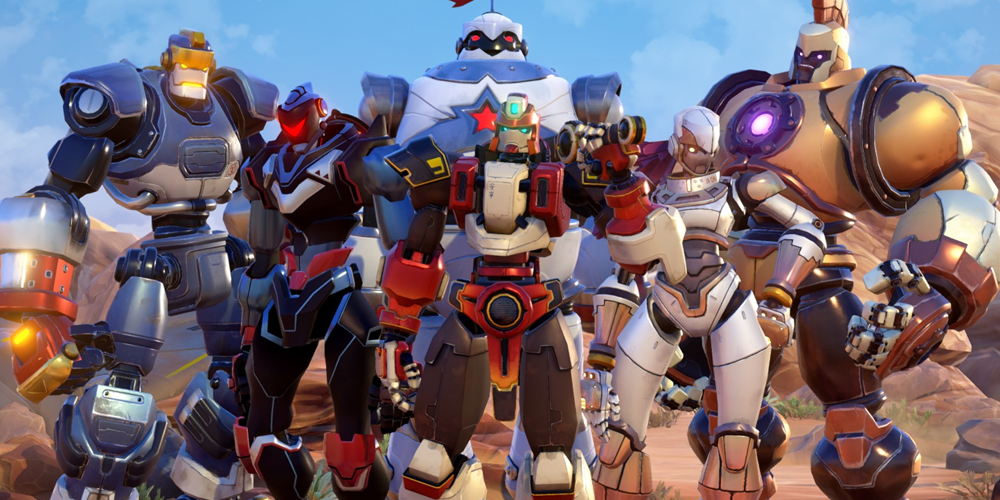Last week, Radiant Entertainment announced that they would be acquired by Riot Games, the developer of League of Legends.
Radiant, so far known for the civilization construction game Stonehearth (which I backed on Kickstarter) and their fighting game Rising Thunder, will be joining the company to develop a new game for Riot. Rising Thunder‘s alpha will ending, presumeably spelling the end of the title; they will still be working on Stonehearth.
The mechanics
Riot presumably will be leveraging the work that Radiant put into Rising Thunder in order to produce a similar game based on the same mechanics. In this case, I firmly believe that Riot’s acquisition of Radiant Entertainment is to leverage Rising Thunder into a fighting game set inside the League of Legends universe.
For the uninitiated, Rising Thunder was an attempt to bridge the gap between fighting games and the casual MOBA audience. Fighting games are notoriously unforgiving, and require players who want to be competent to spend time reading, rehearing and practicing the base fundamentals of the game and their character. Then, they have to adjust to an opponent’s habits on the fly, adapting to their character, as well.
Most mass-audience members do not have time for that. They want to have a game that has depth, sure, but they also want some kind of gratification along the way.
Rising Thunder allowed players to feel that reward by simplifying special moves to execute at the press of one button, which then cooled down on a timer. This was undoubtedly borrowed from MOBAs like League of Legends and Dota 2, which use an identical system. This, in theory, allowed players to feel like superstars for pulling off something flashy and punishing while still allowing the hardcore audience to feel rewarded for knowing when and why to use them.
Essentially it was getting the best of both worlds.
The expansion of League
In 2014, Riot Games condensed the lore of League of Legends to be a lot less meta. Up until that point, the “game” of League was actually built into the story, where “summoners” (the players) would control “champions” (the in-game characters) to settle disputes arbitrated by the League of Legends. In short, if two nations had a problem, they’d put five summoners against five others to settle it.
However, over time the reasoning for new characters (especially ones with more mystical or godlike powers) to join the League got a bit harder to explain — if they could break worlds, why would they be wasting their time on petty border disputes? Riot then removed this aspect of lore, giving them more flexibility.

We saw it with Blizzard and Hearthstone: take an IP people are nostalgic and attached to, throw it in a new game type, and see people instantly attach to it. You have an in-built audience that doesn’t need to be prompted to like something; they enjoy the characters and setting already. Considering the League of Legends IP (not necessarily the game itself) is one of Riot’s strongest properties, this extension to other titles makes total sense.
No other esport has the amount of fanworks, cosplay, secondary industries (conventions, streamers-as-celebrities) or community behind it, and Riot knows that keeping things in the same universe means more money and an extension to the lifespan of both games.
The talent
Also important to the acquisition is the talent that Riot now has at its disposal: Tom and Tony Cannon are two of the organizers of the Evolution Championship Series, the fighting game community’s biggest yearly event.
While Riot are no stranger to event planning, having these minds in their company means they will hopefully avoid problems when it comes to running tournaments and events with its new game. While the FGC and the Riot-idealized community are pretty far from each other, the base event should be relatively the same as EVO; run a tournament, get people to bring their own controller hardware, and enable the base consumer to feel like they’re part of an LCS-like environment.
However, it will be interesting to see how the FGC takes the emergence of a hypothetical title; a lot of the hardcore are decidedly anti-esports until there is a direct benefit to them. Riot will need to be able to balance the desire for prize money with the backlash that inevitably comes when they want to make their community a little more family-friendly to watch and participate in.

Seth Killian is also part of Radiant, which brings a degree of legitimacy to the endeavor; as a Street Fighter commentator and Senior Manager for Capcom, Killian brings essential knowledge and a good base of credibility for Riot to learn from. I could see them putting him in a Nick Allen-like position (referencing the former Head of Esports for Riot, who previously worked at the IGN Pro League) and letting him be a thought leader within the company.
When it happened, Riot’s acquisition of Radiant was interesting because they’ve always been a singular developer, not a label, or publisher. As someone on my Twitter noted, Riot is about to become Riot Games, not just “those guy who make League of Legends“.
The irony, though, is that if they leverage League for this new title, they won’t be escaping that stigma, just modifying it to their benefit. For a company that’s been doing that for a large amount of their company’s history, though, that seems to be working out for them just fine.
Good luck, Riot, and I swear to god, if Stonehearth ends up a pile of garbage because of this acquistion, you’ll be hearing from one angry Kickstarter backer.


Leave a Reply